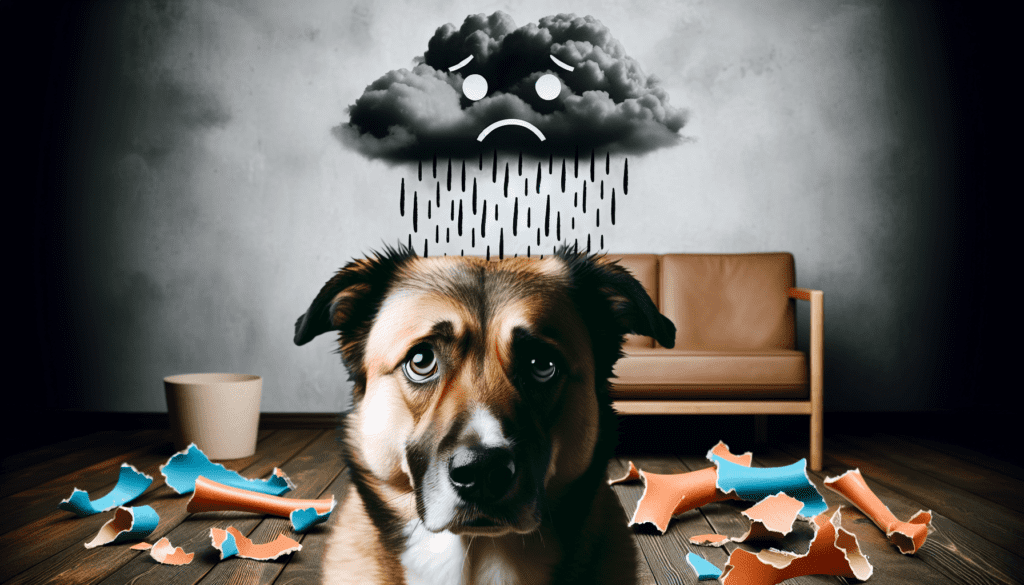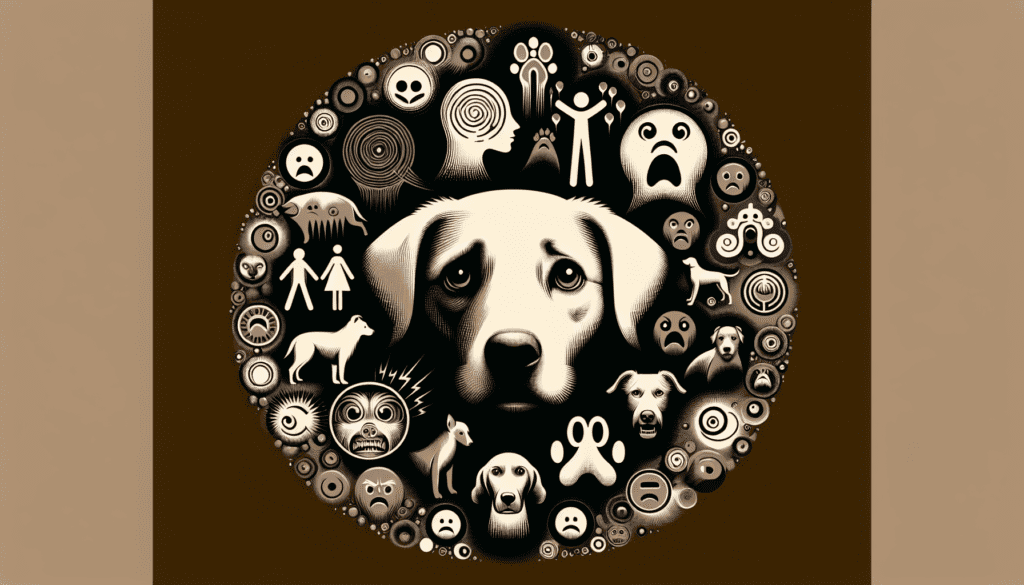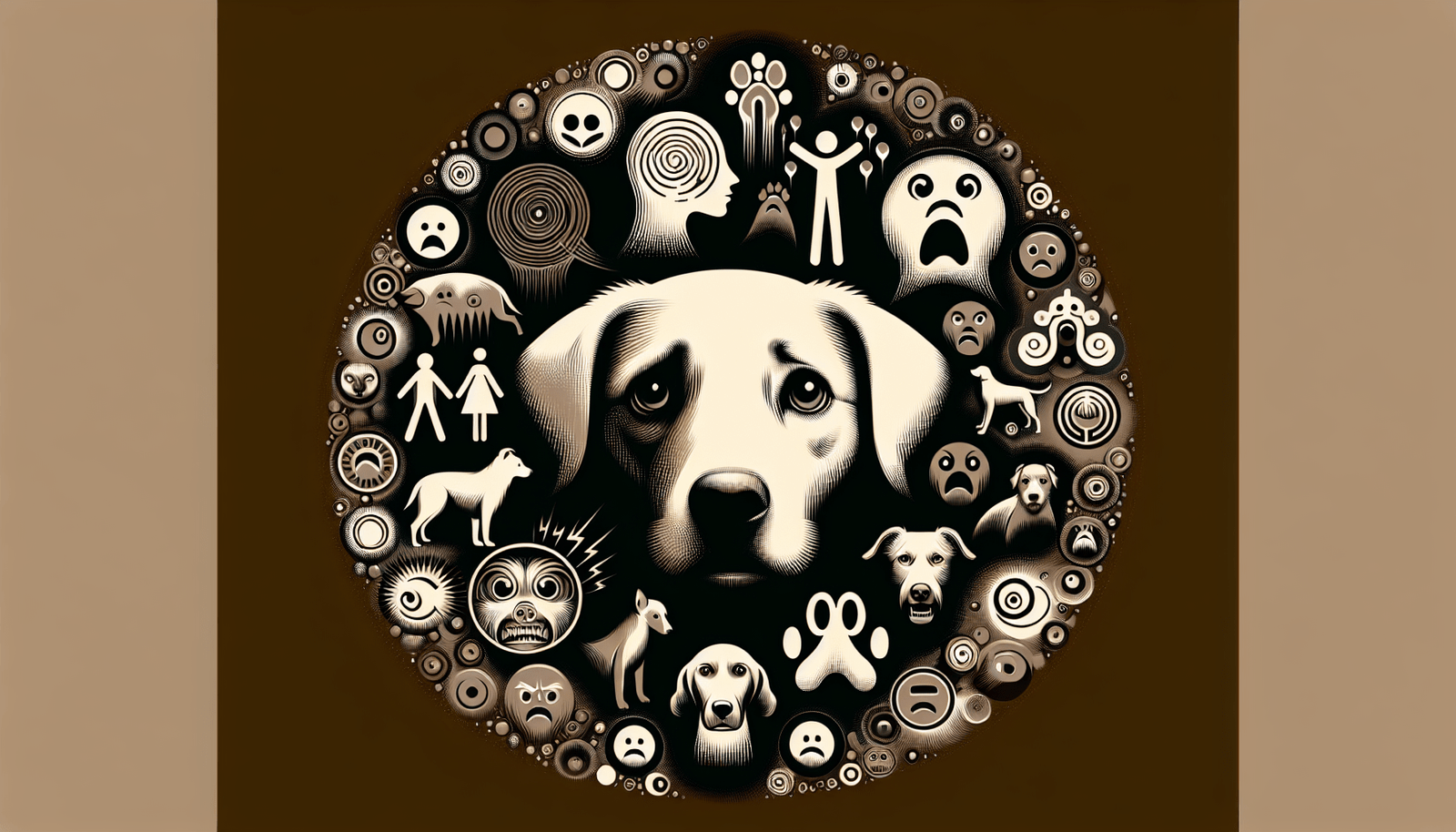If you’ve ever wondered if certain breeds of dogs are more prone to anxiety, you’re not alone. Worrying about our furry friends’ emotional well-being is natural, and understanding their temperament can help us provide better care. In this article, we’ll explore whether specific breeds are more likely to experience anxiety and the potential factors that contribute to their unease. So, let’s dive into the world of dog breeds and anxiety together!
Introduction
If you’re a dog owner, you likely understand the deep bond that can form between you and your furry friend. However, just like humans, dogs can experience anxiety. Canine anxiety is a condition that can affect dogs of all breeds and sizes, and it’s important for pet owners to be aware of the signs and causes of anxiety in order to provide the appropriate support and care for their beloved companions. In this article, we will explore the definition of canine anxiety, common symptoms, and the various factors that contribute to this condition. We will also delve into specific breeds that are more prone to anxiety and discuss strategies for recognizing and managing anxiety in dogs.
Understanding Canine Anxiety
Definition of canine anxiety
Canine anxiety refers to a state of fear, distress, or unease experienced by dogs. Just like humans, dogs can exhibit various levels of anxious behavior, which can range from mild to severe. It’s important to note that anxiety is different from fear, which is a response to an immediate threat or danger. Canine anxiety often manifests itself in situations where there is no immediate threat, such as separation from their owners, loud noises, or unfamiliar environments.
Common symptoms of anxiety in dogs
Dogs experiencing anxiety may display a range of behavioral and physical symptoms. Common behavioral symptoms include excessive barking, panting, pacing, trembling, restlessness, destructive behavior, and aggression. Physical symptoms may include increased heart rate, dilated pupils, excessive drooling, reduced appetite, and loss of bladder control. It’s essential to recognize these signs early on in order to provide the necessary support and intervention for your anxious canine companion.
Causes of anxiety in dogs
Anxiety in dogs can be caused by a variety of factors, including genetics, past traumatic experiences, lack of socialization, changes in routine or environment, or medical conditions. Additionally, dogs are highly perceptive animals, and they can pick up on their owner’s stress and anxiety, leading to their own anxious behavior. Understanding the underlying causes of your dog’s anxiety can help you develop a tailored plan to manage and reduce their distress.
Role of Genetics in Canine Anxiety
Genetic factors influencing anxiety in dogs
Genetics play a significant role in a dog’s temperament, including their predisposition to anxiety. Certain breeds may have a higher likelihood of developing anxiety due to their genetic makeup. While not all dogs of these breeds will experience anxiety, it’s important for owners to be aware of the potential for anxiety-related behaviors and provide the appropriate support. Genetic factors can influence a dog’s temperament, sensitivity to stress, and ability to cope with challenging situations.
Behavioral traits associated with anxiety-prone breeds
Certain breeds are known for their anxious tendencies, and this can be attributed to a combination of genetic and environmental factors. For example, the Cavalier King Charles Spaniel and the Bichon Frise are known to be more prone to anxiety-related behaviors, such as separation anxiety. These breeds may require extra attention, socialization, and training to help them feel secure and reduce their anxiety.
Breeds Prone to Anxiety
Breeds known for their anxious tendencies
While any dog can experience anxiety, some breeds are more prone to anxious behavior. Breeds such as the Chihuahua, Shetland Sheepdog, and Yorkshire Terrier have been found to be more predisposed to anxiety. This doesn’t mean that every dog of these breeds will experience anxiety, but it’s important for owners of these breeds to be mindful of the potential for anxiety-related behaviors and provide appropriate support.
High-energy breeds and their predisposition to anxiety
High-energy breeds, such as Border Collies and Australian Shepherds, are known for their intelligence and intense drive. While these traits make them excellent working dogs, they also make them more prone to anxiety. These breeds require ample physical exercise, mental stimulation, and structure to prevent the buildup of anxiety and redirect their energy in a positive way.

This image is property of pixabay.com.
Small Breeds and Anxiety
Toy and small breeds with higher anxiety levels
Small breeds, often referred to as toy breeds, can be more susceptible to anxiety due to their size and sensitivity. Breeds such as the Pomeranian, Maltese, and Miniature Pinscher are known to have higher anxiety levels. Their small stature and delicate nature can make them more prone to stress and fear-inducing situations. Providing a secure and predictable environment for these breeds is crucial in managing their anxiety and ensuring their well-being.
Factors contributing to anxiety in small breeds
In addition to their size, small breeds may also experience anxiety due to their close bond with their owners. These dogs often rely heavily on their human companions for security and comfort, making separation anxiety a common issue. The lack of socialization or exposure to new people and environments can also contribute to anxiety in small breeds. Ensuring a well-rounded socialization process and gradually exposing these dogs to new experiences can help them build confidence and reduce anxiety.
Large Breeds and Anxiety
Giant breeds and their susceptibility to anxiety
While large dogs may appear strong and confident, they are not immune to anxiety. In fact, some giant breeds, such as the Great Dane and Saint Bernard, are known to have a higher susceptibility to anxiety. The size and weight of these breeds can make them more prone to fear and anxiety-triggering situations. It’s important to provide adequate socialization and training for these large breeds from an early age to help them develop the necessary coping mechanisms and reduce their anxiety levels.
Specific large breeds prone to anxiety
Certain large breeds have a higher tendency to develop anxiety-related behaviors. The Labrador Retriever and the German Shepherd are two examples of such breeds. These intelligent and loyal dogs can become anxious when faced with factors such as separation, loud noises, or changes in routine. Recognizing the signs of anxiety and providing a stable and supportive environment can greatly help in managing their anxiety.
Working and Sporting Breeds
Anxiety in working dog breeds
Working dog breeds, such as the Border Collie and the Golden Retriever, are often highly intelligent and driven by a strong work ethic. While these traits make them excel in various tasks, they can also contribute to anxiety. These breeds may become anxious if they don’t have an outlet for their energy or if their mental stimulation needs are not adequately addressed. Engaging these dogs in appropriate activities and providing them with a job or purpose can help alleviate their anxiety and promote a healthy mental state.
Sporting breeds and their anxiety-related challenges
Sporting breeds, like the Cocker Spaniel and the Vizsla, may also face unique challenges related to anxiety. These breeds are often highly active and require regular exercise and mental stimulation. Failure to meet these needs can lead to anxiety-related behaviors, such as destructive chewing, excessive barking, or pacing. Ensuring an active lifestyle and providing outlets for their energy can help these breeds manage their anxiety and thrive in a supportive environment.
Rescue Dogs and Anxiety
Anxiety issues commonly found in rescue dogs
Rescue dogs often come from unknown backgrounds and may have experienced traumatic events or prolonged periods of stress before finding their forever homes. As a result, anxiety is a common issue for many rescue dogs. These dogs may exhibit fearful behavior, separation anxiety, or general anxiety due to their past experiences. Patience, understanding, and consistent training are essential when helping rescue dogs overcome their anxiety.
Helping rescue dogs overcome anxiety
Rescue dogs require a stable and predictable environment to help them rebuild trust and confidence. Establishing a routine, providing positive reinforcement, and gradually exposing these dogs to new experiences can help them overcome anxiety and develop a sense of security. Seeking the guidance of a professional dog trainer or behaviorist experienced in working with rescue dogs can also greatly assist in providing effective strategies for managing their anxiety.

Environmental Factors and Anxiety
Impact of environment on canine anxiety
The environment in which dogs live can have a significant impact on their anxiety levels. Factors such as living in a chaotic or unpredictable household, exposure to excessive noise, or lack of socialization can contribute to increased anxiety in dogs. Additionally, changes in the environment, such as moving to a new home or the introduction of a new family member or pet, can trigger anxiety in dogs. Creating a calm and structured environment, providing regular exercise and mental stimulation, and gradually exposing dogs to new experiences can help mitigate anxiety and promote a more relaxed state.
Mitigating anxiety through appropriate surroundings
Creating a safe and comforting environment for your dog is crucial in managing their anxiety. Providing a designated space for relaxation, such as a cozy crate or a quiet corner in your home, can give your dog a sense of security. Using white noise machines or calming music can also help drown out external noises that may trigger anxiety. Additionally, creating a routine and sticking to it can provide a sense of predictability and stability for your dog, reducing their anxiety levels.
Recognizing and Managing Canine Anxiety
Identifying anxiety in dogs
Recognizing the signs and symptoms of anxiety in dogs is vital for early intervention. Monitoring your dog’s behavior for signs of excessive panting, pacing, trembling, or destructive behavior is important. Changes in appetite, excessive licking or grooming, or avoidance of certain situations or people can also indicate anxiety. If you notice these behaviors persisting or intensifying, it’s important to consult with your veterinarian to develop a plan for managing your dog’s anxiety effectively.
Training and behavior modification techniques
Training and behavior modification techniques can play a significant role in the management of canine anxiety. Positive reinforcement training methods that focus on rewarding desired behaviors can help dogs build confidence and reduce anxiety. Using counter-conditioning and desensitization techniques, which involve gradually exposing your dog to anxiety-inducing stimuli, can help them develop a more positive association and response. Consistency, patience, and seeking guidance from a professional dog trainer can greatly assist in implementing effective training techniques for anxiety management.
Medical interventions for severe anxiety
In severe cases of anxiety, medical interventions may be necessary to provide relief for your dog. Your veterinarian may prescribe anti-anxiety medications to help manage your dog’s anxiety. These medications can help regulate your dog’s emotional response and reduce anxiety-related behaviors. However, it’s important to note that medication should always be used in combination with other management strategies, such as training and environmental modifications, to effectively address your dog’s anxiety.
In conclusion, canine anxiety is a complex condition that can affect dogs of all breeds and sizes. Understanding the causes, symptoms, and specific factors that contribute to anxiety is crucial in providing the necessary support and care for your furry friend. Whether your dog is genetically predisposed to anxiety, a rescue dog recovering from past trauma, or a high-energy breed in need of mental stimulation, there are various strategies available to help manage and reduce anxiety levels. By recognizing the signs, implementing appropriate training techniques, and creating a calming environment, you can help your canine companion live a happier and anxiety-free life. Remember, your unconditional love and support are the best remedies for soothing an anxious dog!


